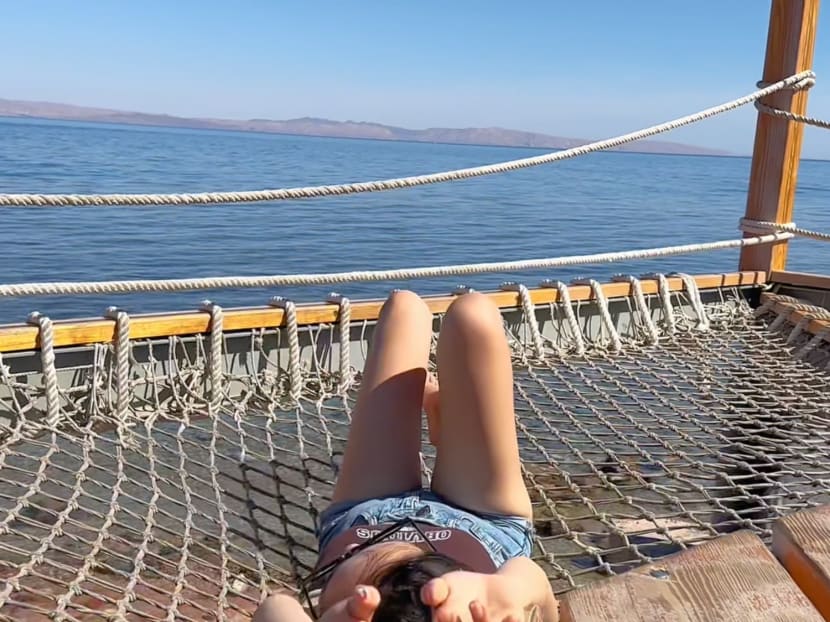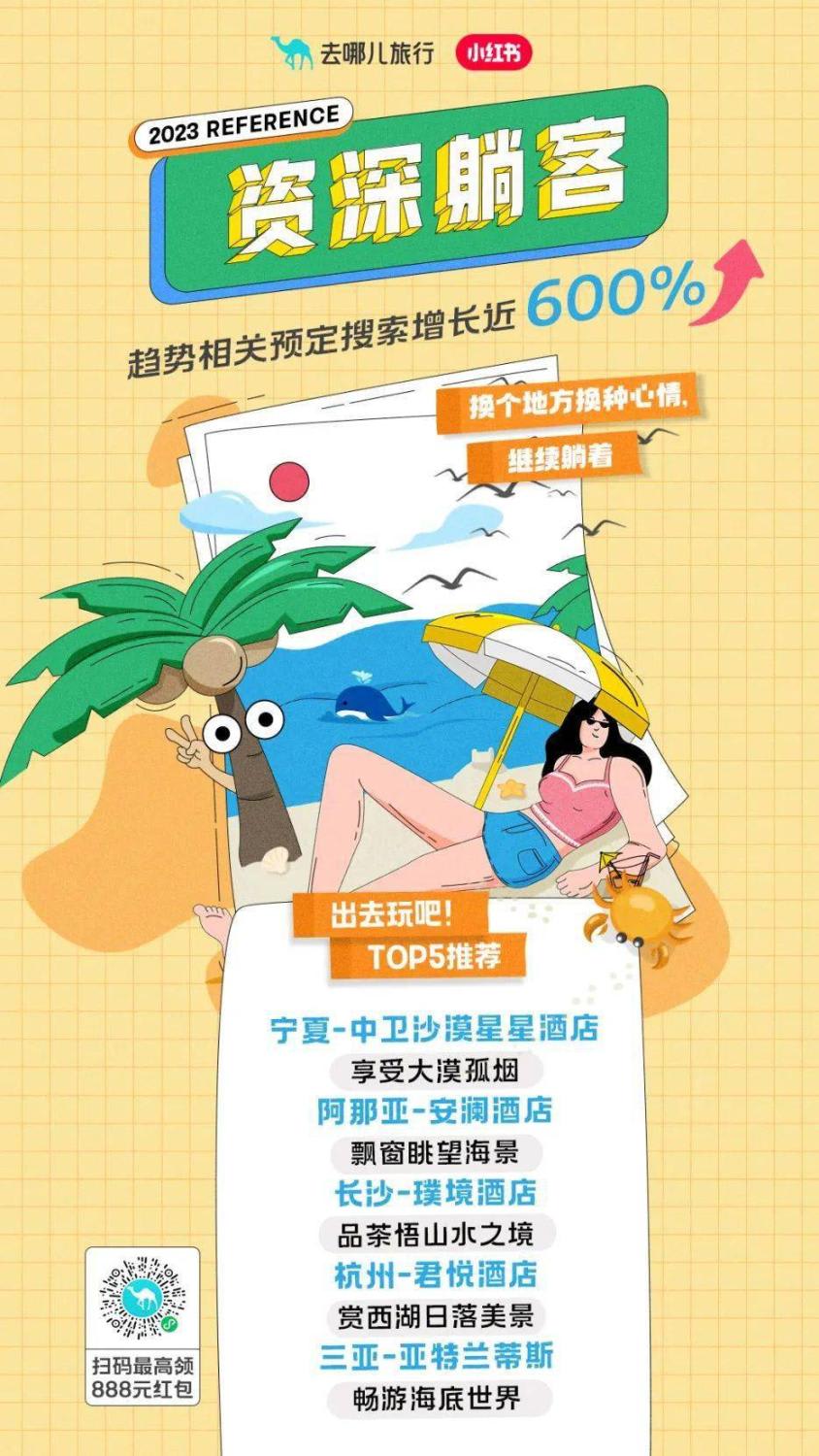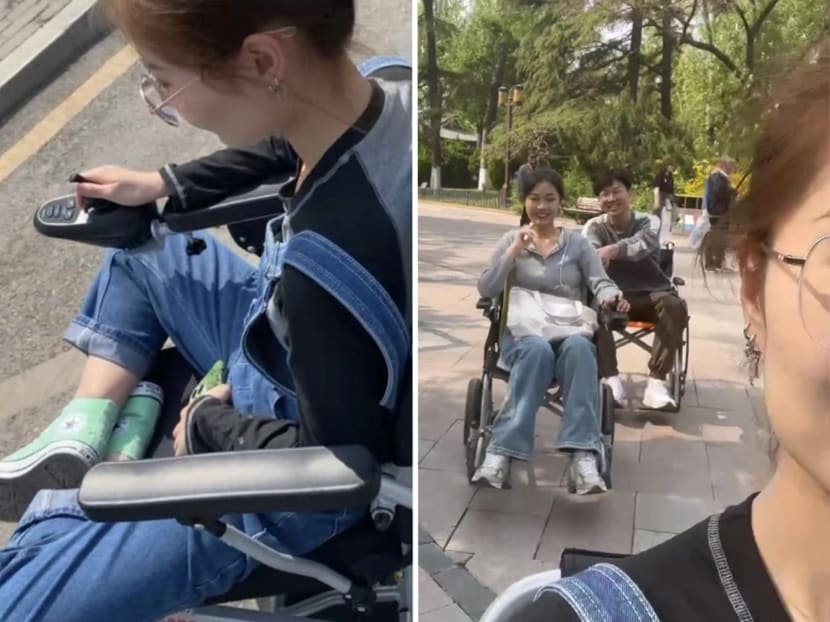#trending: Relaxed, 'lying flat' approach to life among China’s youth spreads to travel and leisure
SINGAPORE — China's "tang ping" or "lying flat" movement seems to be influencing the tourism sector. This is where one opts for a slow, relaxed lifestyle directly at odds with the country's traditionally hyper-competitive work culture.

- China's "tang ping" or "lying flat" trend seems to be influencing tourism
- "Lying flat" first gained traction among the country's youth in 2021
- It involves staying out of regular school or work, forgoing some material wants and not putting pressure on oneself to be successful in the traditional sense
- Now, these young people are extending the trend to the times they go on holiday or take time out for leisure
- Rather than having a packed itinerary with a long list of must-see attractions, they are taking time to smell the flowers
SINGAPORE — China's "tang ping" or "lying flat" movement seems to be influencing the tourism sector. This is where one opts for a slow, relaxed lifestyle directly at odds with the country's traditionally hyper-competitive work culture.
"Lying flat", which first gained traction among the youth in China in 2021, commonly involves staying out of regular school or work, forgoing some material wants and simply not putting pressure on oneself to be successful in the traditional sense.
Now, young people have taken this slow-lane approach to life a step further by adopting the laid-back attitude in their leisure time as well.
An annual travel trend report, jointly produced by Chinese travel agency Qunar and social media platform Xiaohongshu, identifies "lying down travel" as the top fourth travel trend to anticipate in 2023.
The latest report's description of the travel style is simple: "Change the place, change your mood and continue to lie down."
Such a mode of travel — with no strategy or itinerary — allows the traveller to fully relax, be comfortable and not be burdened by excessive planning or busyness, it adds.
The report said that the number of travel booking searches related to the trend has gone up by nearly 600 per cent.

On Chinese social media platforms such as microblogging site Weibo and short-video platform Douyin, their users have praised "lying flat travel", with some stating that they are growing "more and more fond" of it.
Many are also using the term to promote travel destinations, referring to potential destinations as "lying flat towns" or "lying flat island resorts".
Speaking to Chinese digital newspaper The Paper, a 24-year-old known as "Tudou" said that "lying flat travel" has allowed her to realise that one does not need to spend money in order to obtain happiness.
Tudou, who enjoys lying in different Shenzhen parks every weekend to experience nature,said: "Besides the cost of picnic mats and food, lying in the park has no other costs. It's simply making full use of the city's natural resources."
Even without a clear purpose, "you can see a lot of beautiful scenery and hear a lot of different conversations, which feels very interesting", she added.
Another traveller, "Luocigaoqianxiaoni", spoke of her first "lying down" trip to Yangshuo, a resort town in Guilin city. On her first day, she wanted to have dinner at a farmhouse across the Lijiang River, and crossed it by boat.
"It was getting dark at the time, and you could see a spectacular sunset. Sitting on a boat on the river, watching the sunset, it was very poetic," she told The Paper.
"Also, the boatman brought his grandson with him. The little boy was climbing here and there on the boat, sometimes jumping down to catch fish with a small basin. I felt that there was a special atmosphere of local life."
In an incident from April this year that is emblematic of this evolving trend, three able-bodied youth were seen using electric wheelchairs for sightseeing at the Daming Lake in Jinan city, Shandong province.

The hashtag #95后买电动轮椅坐游大明湖# or "Post-95s buy electric wheelchair to travel around Daming Lake" was viewed 978,000 times on Weibo, with online users split in their opinions on the topic.
Some argued that it was disrespectful and trivialised the experiences of the disabled, while others felt that there was "no difference between taking a wheelchair and riding a bicycle" to visit scenic spots.
One of the trio in the viral video, with the family name of Li, reportedly told Shandong-based news portal Haibao News that she and her friends love to travel, but long-duration tours make them extremely tired.
Inspired by another young traveller who used an electric wheelchair to tour Hangzhou's West Lake, Ms Li decided to buy the electric wheelchair since it could also be used by her older family members at home. She has since given it to her grandmother.
In a country that prizes the "996 culture" of working from 9am to 9pm, six days a week, the "lying flat" trend is not a welcome one. On the contrary, mentions of the term have reportedly been censored online by the Chinese authorities.
But the young in China are undeterred, as the trend clearly continues to shape not only how they approach work and education but also leisure. This newfound appreciation for "lying flat travel" points to a shift in traditional priorities and a desire for meaningful experiences in all aspects of their lives.
As the Labour Day Travel Trend Report 2023 reads: "('Lying flat') sounds like a kind of indifference towards the world, but is actually a higher pursuit of life."











